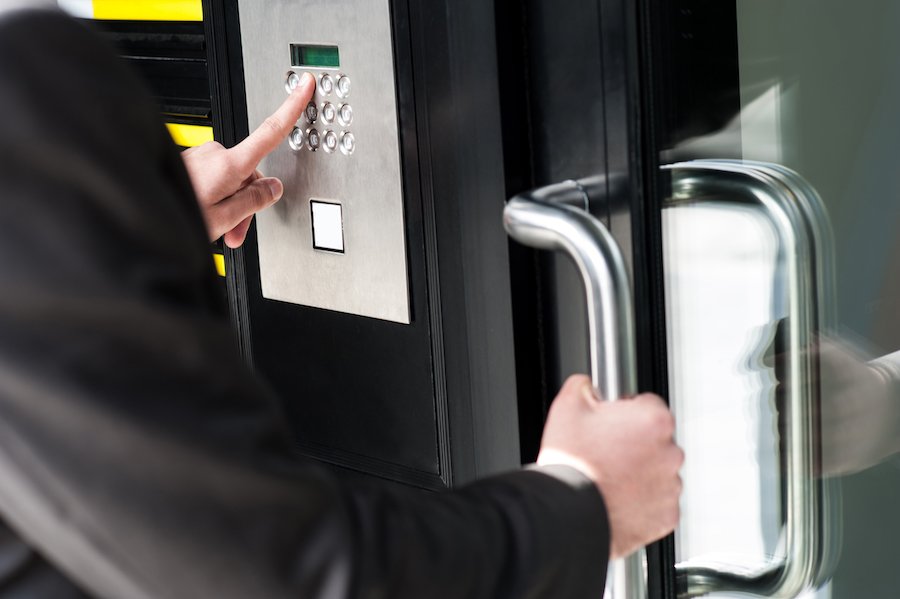Office Security Systems: What Every Business Owner Needs to Know
In today's fast-paced business environment, the importance of robust office security systems cannot be overstated. With increasing concerns about theft, vandalism, and data breaches, business owners must take proactive measures to safeguard their assets, employees, and sensitive information. This article delves into the essential components of office security systems, offering insights and guidance for every business owner.
The Importance of Office Security
Office security systems is not merely about protecting physical assets; it encompasses the safety of employees and the integrity of sensitive data. A comprehensive security system can mitigate risks and enhance overall workplace safety, leading to a more productive environment.
Protecting Physical Assets
Physical assets, including equipment, inventory, and property, represent a significant investment for any business. A well-designed security system can deter potential thieves and protect these valuable resources. Measures such as surveillance cameras, access control systems, and alarm systems work together to create a formidable barrier against theft.
Moreover, the presence of security measures can instil a sense of safety among employees, which can lead to improved morale and productivity. When employees feel secure, they are more likely to focus on their work rather than worrying about potential threats. This sense of security can also foster a culture of trust within the workplace, encouraging collaboration and innovation as employees feel free to express their ideas without fear of external disruptions.
Additionally, regular audits of security systems are crucial. By routinely assessing the effectiveness of existing measures, businesses can identify vulnerabilities and adapt their strategies accordingly. This proactive approach not only protects physical assets but also demonstrates a commitment to employee safety, reinforcing the notion that the organisation values its workforce.
Safeguarding Sensitive Data
In an era where data breaches are rampant, safeguarding sensitive information is paramount. Office security systems should include measures to protect digital assets, such as firewalls, encryption, and secure access protocols. These technologies help prevent unauthorised access to confidential information, ensuring that both customer and company data remain secure.
Furthermore, employee training on data protection practices is essential. Regular seminars and workshops can educate staff on the importance of cybersecurity and the role they play in maintaining a secure environment. By fostering a culture of awareness, employees become the first line of defence against potential cyber threats, recognising phishing attempts and understanding the significance of strong passwords.
In addition to training, implementing a clear data management policy is vital. This policy should outline how sensitive information is handled, stored, and disposed of, ensuring that all employees are aware of their responsibilities. Regular reviews and updates to this policy can help adapt to the ever-evolving landscape of cyber threats, reinforcing the organisation's commitment to data security and compliance with regulations such as GDPR. Such diligence not only protects the company but also builds trust with clients and partners, who are increasingly concerned about data privacy in today's digital age.
Key Components of Office Security Systems
Implementing an effective office security system requires a combination of various components. Each element plays a crucial role in creating a comprehensive security strategy tailored to the specific needs of a business.
Surveillance Cameras
Surveillance cameras are a fundamental aspect of any security system. They provide real-time monitoring and can deter criminal activity simply by their presence. Modern cameras come equipped with advanced features such as motion detection, night vision, and remote access, allowing business owners to monitor their premises from anywhere.
Additionally, recorded footage can serve as valuable evidence in the event of an incident, aiding law enforcement in their investigations. When choosing surveillance cameras, consider factors such as resolution, field of view, and storage capacity to ensure optimal performance.
Access Control Systems
Access control systems regulate who can enter specific areas within a building. These systems can range from simple keycard access to sophisticated biometric systems that use fingerprints or facial recognition. Implementing an access control system enhances security by ensuring that only authorised personnel can enter sensitive areas, such as server rooms or finance departments.
Moreover, access control systems can be integrated with other security measures, such as alarms and surveillance cameras, to create a cohesive security network. This integration allows for real-time monitoring and alerts, providing an added layer of protection.
Alarm Systems
Alarm systems are crucial for alerting business owners and law enforcement to potential breaches. These systems can be tailored to detect various threats, including unauthorised entry, fire, and environmental hazards. A well-placed alarm system can provide peace of mind, knowing that any suspicious activity will be promptly addressed.
In addition to traditional alarm systems, modern technologies offer smart alarm solutions that can send alerts directly to mobile devices. This feature allows business owners to stay informed about security breaches, even when they are away from the office.
Choosing the Right Security Provider
Selecting a reliable security provider is a critical step in implementing an effective office security system. Business owners should consider several factors when choosing a provider to ensure they receive the best possible service.
Experience and Reputation
When evaluating security providers, consider their experience and reputation in the industry. A company with a proven track record and positive customer reviews is more likely to deliver quality service. Conduct thorough research, including checking references and reading testimonials, to gauge the provider's reliability.
Additionally, inquire about the provider's experience with businesses similar to yours. A security company that understands the unique challenges faced by your industry will be better equipped to design a tailored security solution.
Customisation and Flexibility
Every business has unique security needs, and a one-size-fits-all approach may not be effective. Look for a security provider that offers customised solutions tailored to your specific requirements. This flexibility ensures that the security system can adapt as your business grows and evolves.
Moreover, a good security provider should be willing to conduct a thorough assessment of your premises to identify potential vulnerabilities and recommend appropriate measures. This personalised approach can significantly enhance the effectiveness of your security system.

Ongoing Support and Maintenance
Security systems require ongoing support and maintenance to function optimally. When selecting a provider, inquire about their support services, including regular maintenance checks, software updates, and emergency response protocols. A provider that offers comprehensive support will ensure that your security system remains effective over time. Learn more about top-rated commercial security services for growing companies.
Furthermore, consider whether the provider offers training for your employees on how to use the security system effectively. Proper training can maximise the benefits of your security measures and empower staff to play an active role in maintaining a secure environment.
Legal Considerations for Office Security
Implementing an office security system also involves navigating various legal considerations. Business owners must ensure that their security measures comply with relevant laws and regulations to avoid potential legal issues.
Privacy Laws
In Australia, privacy laws govern the collection and use of personal information. When installing surveillance cameras, it is essential to inform employees and clients that they are being monitored. Clear signage indicating the presence of cameras can help fulfil legal obligations while also deterring criminal activity.
Moreover, businesses must ensure that any data collected through security systems is stored securely and used only for legitimate purposes. Regular audits of data handling practices can help ensure compliance with privacy laws.
Workplace Safety Regulations
Workplace safety regulations also play a role in office security. Business owners must ensure that their security measures do not compromise employee safety. For instance, emergency exits should remain accessible and unobstructed, even with security systems in place.
Additionally, conducting regular risk assessments can help identify potential hazards and ensure that security measures are aligned with workplace safety standards. This proactive approach not only protects employees but also demonstrates a commitment to their well-being.
Future Trends in Office Security
As technology continues to evolve, so too do the trends in office security systems. Staying informed about emerging technologies can help business owners adapt their security strategies to meet new challenges.
Smart Security Solutions
The rise of smart technology has revolutionised office security. Smart security systems, which can be controlled remotely via smartphones or tablets, offer increased convenience and flexibility. Features such as real-time alerts, remote monitoring, and automated locking systems enhance security while simplifying management.
Moreover, the integration of artificial intelligence (AI) in security systems can improve threat detection and response times. AI-powered cameras can analyse footage in real-time, identifying suspicious behaviour and alerting security personnel immediately.
Cybersecurity Integration
With the increasing reliance on digital technologies, integrating cybersecurity measures with physical security systems is becoming essential. A holistic approach that addresses both physical and digital threats can provide comprehensive protection for businesses.
As cyber threats continue to evolve, investing in cybersecurity training for employees and implementing robust digital security measures will be crucial for safeguarding sensitive information.

Conclusion
In conclusion, office security systems are a vital component of any business strategy. By understanding the importance of security, the key components of effective systems, and the legal considerations involved, business owners can make informed decisions to protect their assets, employees, and sensitive data.
Investing in a reliable security provider, staying abreast of emerging trends, and fostering a culture of security awareness among employees will further enhance the effectiveness of security measures. Ultimately, a proactive approach to office security not only mitigates risks but also contributes to a safe and productive work environment.


